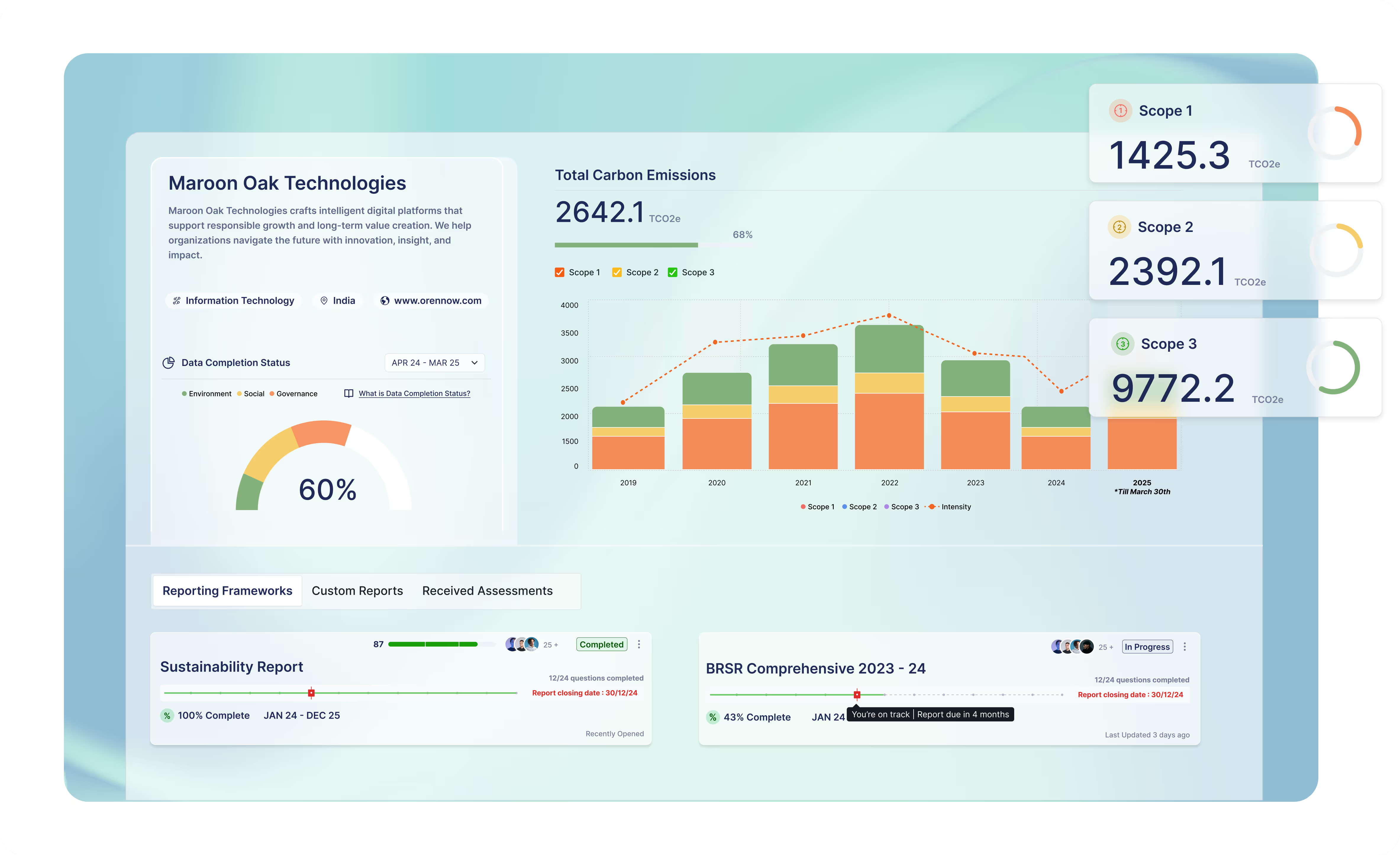How ESG Strategies Can Help Your Business Save Costs

Unlocking Cost Savings Through Effective ESG Strategies
Today, sustainability is more than a moral choice. Companies are finding that sustainability delivers measurable financial benefits. The benefits of an ESG strategy are also visible in operations and compliance. And above all, the advantages appear in the form of smart capital management.
Harvard Business Review notes that early ESG initiatives often bring the highest returns. It also notes that continued efforts bring longer-term savings. The main areas include:
- Operations: Reduced energy and water use, streamlined processes, and automation
- Compliance: Lower risk of fines, penalties, and regulatory disruption
- Capital: Stronger credit ratings, lower insurance premiums, and positive investor perception
A study by IBM and the National Retail Federation highlights that consumers increasingly favour sustainable brands and are willing to pay a premium. The benefits of an ESG strategy are thus both ethical and financially compelling, providing a lasting competitive advantage.
Supporting Data
- Companies with strong ESG scores often enjoy lower costs of capital and reduced legal risks (MSCI).
- ESG initiatives can boost operating profits by up to 60% (McKinsey).
- 66% of consumers prefer to buy from sustainable brands (Nielsen).
- Ethical and sustainable practices correlate with higher employee satisfaction, with top ESG performers scoring 14% above the global average.
- Clear ESG goals, such as reducing energy or water use, can result in immediate operational cost savings.
The Flipside of Ignoring ESG: Risks That Impact Your Bottom Line
Ignoring ESG factors can cost real money, beyond being a moral lapse. ESG practices actively protect companies from unexpected risks in operations, society, and governance.
Common exposures include:
- Environmental: Regulatory setbacks, fines, or project delays because of non-compliance with local or national environmental laws.
- Social: Customer backlash, lost sales, and legal liabilities arising from human rights violations or unsafe labour practices.
- Governance: Fraud, internal sabotage, or weak controls. These compromise revenue, talent retention, and investor confidence.
MSCI Inc. and McKinsey studies consistently show that companies that follow good ESG practices have lower capital costs and better financial performance. Companies that do not focus on these risks often underperform financially, putting their reputation and future opportunities at risk. This shows that proactive ESG due diligence is necessary to protect the bottom line.
Environmental Sustainability: Driving Operational Efficiency and Cost Reduction
Companies already know that environmental sustainability is a key driver of cost savings. This is no longer a minor consideration. Those that use proper ESG strategies clearly achieve measurable improvements in their margins and ability to bounce back
Some notable instances are:
- Hewlett-Packard: Generated $3.5 billion in commercial sales in 2021 from offerings where sustainability criteria were actively incorporated.
- Unilever: Achieved over €1.2 billion in operational cost savings since 2008 through sustainable sourcing efficiencies.
- Nike: Improved profit margins by $50 million by replacing certain shoe components with more sustainable materials.
- Medtronic: Saved $2.2 million through 80+ energy efficiency projects, reducing energy use and greenhouse gas emissions.
These cases underscore a broader lesson: adopting sustainable practices is not merely compliance; it requires a mindset shift from “business as usual” to purpose-driven business. Companies that embrace this approach unlock long-term value, reduce regulatory exposure, and position themselves competitively for the future.
Beyond Environment: Social and Governance Benefits of ESG Strategies
Effective ESG adoption offers advantages that reach well beyond environmental savings. The benefits often show up in a company’s workforce, governance quality, and long‑term resilience. Strong social practices:
- Fair labour policies
- Inclusive workplaces
- Respect for human rights
These tend to improve employee satisfaction and retention. They provide a stable and motivated workforce.
On the governance side, firms that embed transparent reporting, robust internal controls, and ethical decision‑making build trust among investors and stakeholders. Such companies often enjoy a lower cost of capital, better access to funding, and a reputation for reliability.
In short, beyond environmental gains, ESG delivers social cohesion, sound governance and sustainable competitive advantage.
Conclusion: ESG Strategy as a Driver for Financial and Sustainable Success
Integrating ESG practices is no longer optional; it is a strategic approach that combines profitability with long-term sustainability. Companies that embed ESG into their operations reap tangible benefits, from operational cost savings and improved creditworthiness to stronger stakeholder trust and market resilience, while contributing positively to society and the environment. At Oren, we help businesses implement an ESG strategy that is both responsible and rewarding.
FAQs
1. What are quick wins for companies starting ESG cost-saving initiatives?
Quick wins typically involve low-hanging operational improvements, such as reducing energy and water consumption, optimising supply chains, automating ESG tracking, and adopting sustainable sourcing. These measures generate immediate cost savings while laying the foundation for broader, long-term ESG benefits.
2. How do social and governance factors influence overall ESG cost efficiency?
Social practices, like fair labour policies and employee engagement, improve retention and productivity, while strong governance ensures transparency, reduces fraud, and lowers compliance costs. Together, these factors enhance operational efficiency, protect capital, and amplify the benefits of ESG strategy beyond environmental savings.
3. Can ESG strategies improve risk management beyond financial savings?
Yes. ESG strategies help companies anticipate regulatory, reputational, and operational risks. By embedding ethical standards, social responsibility, and governance controls, firms minimise potential disruptions, legal penalties, and stakeholder backlash, creating resilience that protects both profitability and long-term sustainability.
Latest Blog Posts
Dive into our blog for insights on making your organization more sustainable.
Sustainability Simplified
Wherever you are in your sustainability journey, we help you advance with confidence.
Schedule a Call



.avif)

